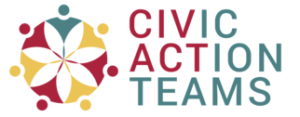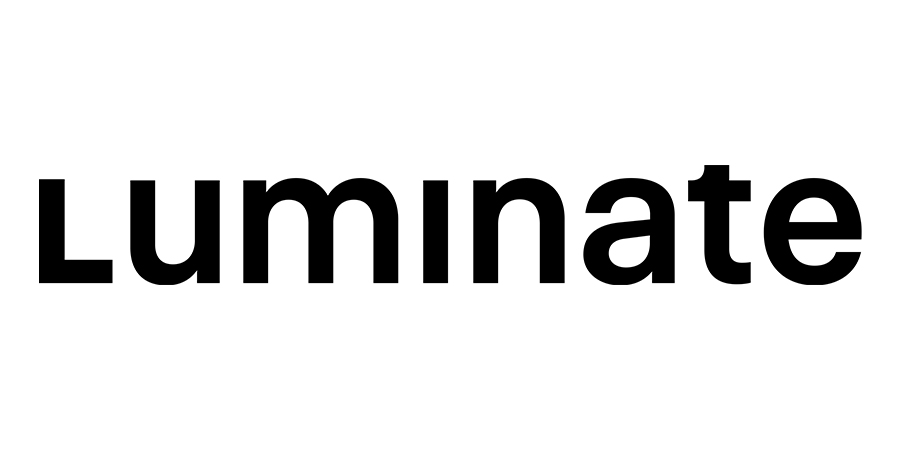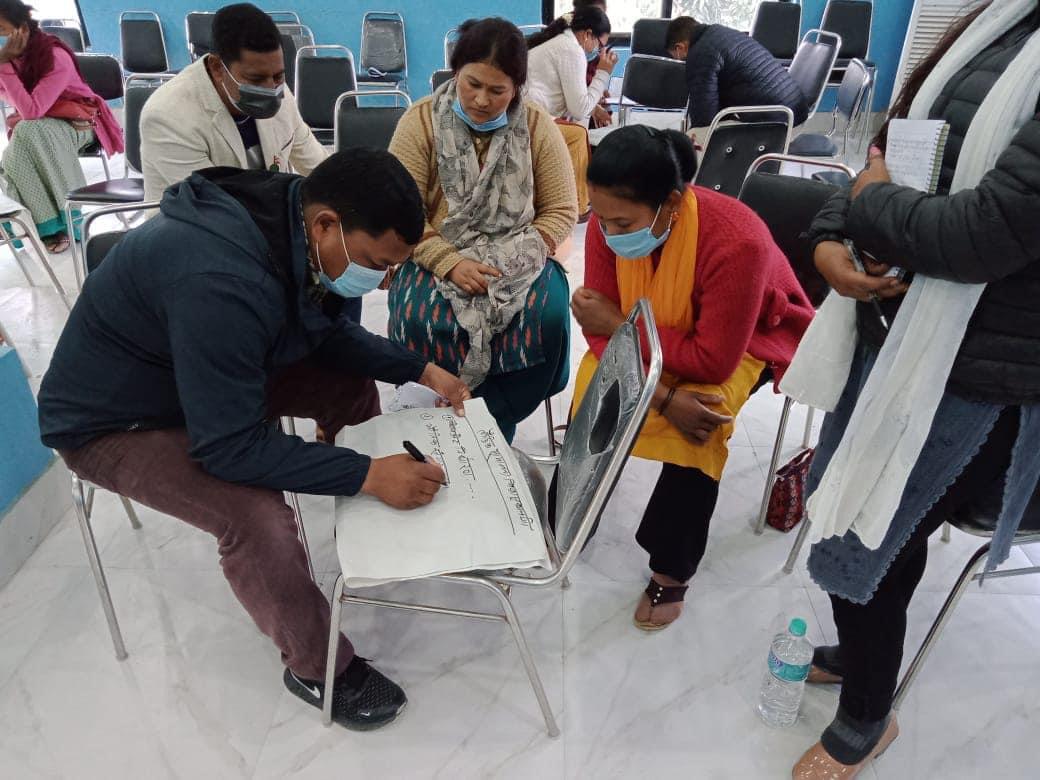
Identifying Needs of Community for Gov-her-nance
Written by: Ashmita Gautam
The Gov-her-nance is a unique model that generates new voices to fix old problems around gender roles, local development, and open government for promoting gender-friendly governance in Nepal. Through this project, we hope to strengthen the capacity of elected female leaders by building democracy from the bottom-up. This project is implemented in Dhangadhi Sub-Metropolitan City which falls in Sudurpaschim province, Kailali District of Nepal. Sudurpaschim province in Nepal has one of the lowest HDI (Human Development Index) rankings with rampant discrimination against women–entrenched patriarchy is preventing women from finding ways to build gender equity at all levels.
In order to make Dhangadhi Sub-Metropolitan a gender-friendly city, we have a team of active young female leaders working to ensure that the marginalized voices are included in local governance.
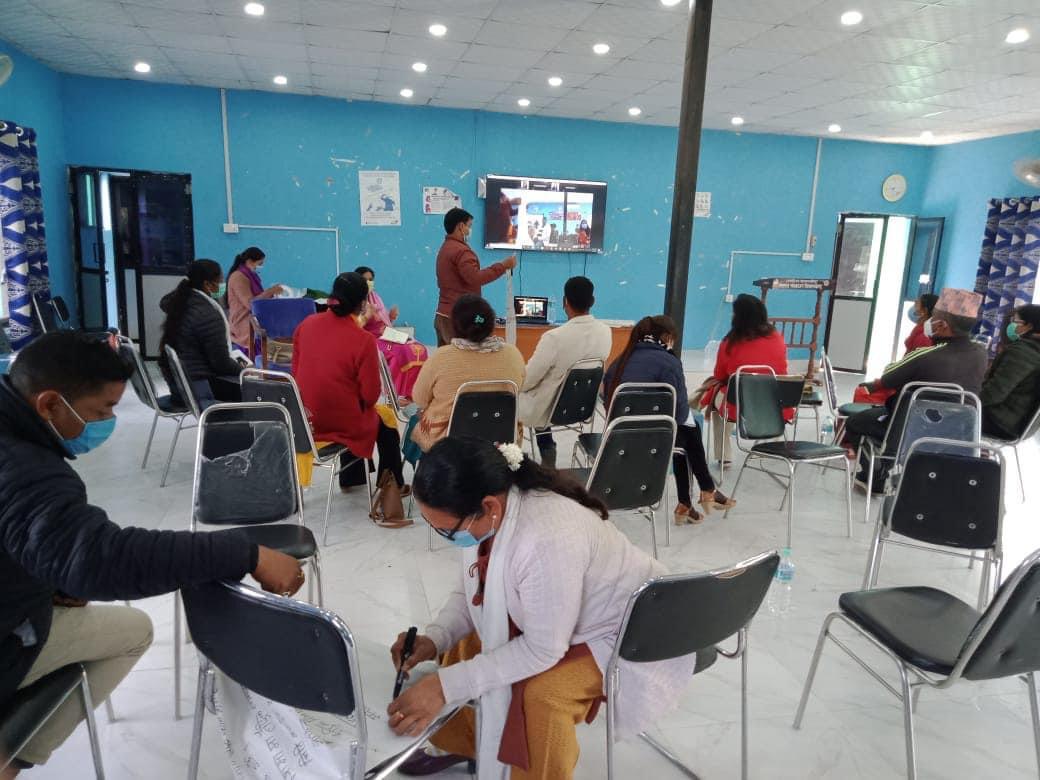
Need Identification Workshop
Under the Gov-her-nance project, Accountability Lab organized an expert-led knowledge workshop (led by Deputy Mayor Ms. Sushila Mishra Bhatta) for municipal council members on 4th January 2021. The workshop emphasized developing effective mutual understandings and reflection on local governance and gender issues. In order to begin the training, participants were divided into groups to discuss various gender-related concerns in Dhangadhi. Emphasis was placed on the recognition of the institutional gaps emanating from the unmet needs of the deprived sections in their communities.
Questions asked to the participants
- What are the challenges/problems faced by women and gender diverse communities [if applicable] in your household?
- What are you doing to eliminate these problems as a government representative?
- What challenges are you facing to effectively implement gender-friendly policies and programs?
Issues Highlighted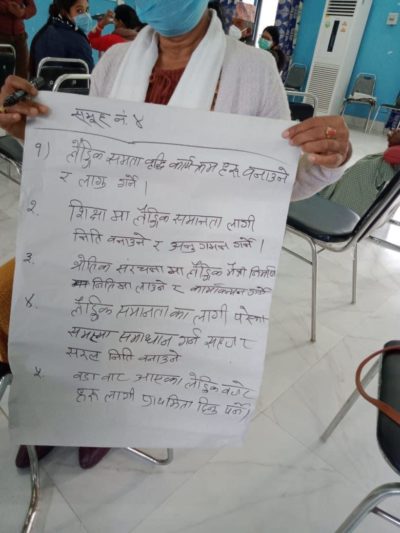
Traditional gender roles
The discussion started around the traditional gender roles that still continue to paralyze our society by reducing the choices of education, occupation, and individual liberty. As a result, a vicious cycle is created reinforcing the patriarchy– the unequal power relationship between males and females. Participants highlighted the same concern where Dhangadhi still seems to be grounded by the societal belief of men’s pre-eminence over women.
Blind credence in superstitions and religious Beliefs
Further, blind credence in superstitions and religious beliefs have also impacted the lives of women in Dhangadhi. These blind faiths have disrupted the social integrity and prestige for women by continuing traditions such as Chhaupadi and other period restrictions. Under this system, women are still not allowed to enter the kitchen, cook food, touch water, enter religious places, etc. during their period cycle. In the worst cases, women are even asked to stay in small huts or animal sheds during the periods. This harmful cultural practice has significantly affected the personal and professional growth of women and girls.
Lack of education and awareness
Lack of education and awareness has further worsened the problem. Women, in particular, get limited learning opportunities resulting in high economic dependency and household work burden. Participants noted that there is a lack of adequate financial resources and opportunities for women. Women in Dhangadhi are still struggling to find the right employment opportunities due to the lack of employment skills. A few skill development training is organized but the amount allocated for the training is low and inadequate.
Gender-based imbalances at the workplace
Further, our patriarchal society is still creating a hindrance for bringing women to the forefront. Gender inequality isn’t limited to household chores and extends to the gender-based imbalances of individuals in power and command at the workplace. The trust in women’s ability to lead and make decisions is very low. Decisions made by women leaders are often questioned and held until male members agree to them. Thus, this conflict has restricted the development of a forward-looking gender approach in Dhangadhi.
Recommendations
Participants recommended the various solutions to converge Dhangadhi Sub Metropolitan towards a gender-friendly unit.
Empower women and the backward classes
Emphasis should be placed on empowering women (especially from the disadvantaged communities such as Dalits, Disabled, and other backward classes). In this context, the three-tier government should work together to advocate on issues such as rights to education, health, employment, rehabilitation, and social security. Local government representatives should also push for the economic empowerment of women by promoting knowledge creation with adequate incentives, loan grants, and income-generating activities. With these initiatives, it can be possible to protect the interest of single women, Dalit women, daily wage earners, and poor families who are most vulnerable to economic insecurity. Further, government representatives should also support the victims of gender-based violence with skills in survivor-centered communication and clinical management of rape. Adequate lighting should also be ensured in shelters, latrines, community roads, pathways, and other public areas to reduce the risk of sexual violence.
Move away from a gender-blind infrastructural mechanism
With the overriding aim of equitable use of existing resources, the government of Nepal has put forward the concept of gender budgeting. However, existing laws and policies aren’t effectively implemented to create awareness on gender mainstreaming, resource allocation, economic empowerment, and program implementation. Therefore, it is necessary to prioritize gender-based assessment of budgetary allocations. To promote equitable results, women’s participation should be encouraged in infrastructural development. The focus can be placed on the improvement of women’s education as a pathway for gender-friendly infrastructural mechanisms.
With these initiatives, trusted partnerships can be built for case management by engaging with civil society, local government, donors, and private partners. The first step is to recognize the power of small steps as little things make all the difference while empowering, healing, and recovering the gender minorities.
